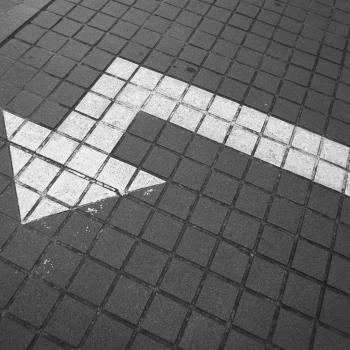If you are anything like me, as soon as things go badly, you look around for someone or something to blame it on. We are all trying so hard for perfection. We try to look perfect, act perfect, and feel perfect. Any cracks in the system could split the dam into pieces. And heaven help me if the floodgates were to open, spilling the raw contents of myself into the world.

It Doesn’t Work
But my obsession with blame doesn’t exactly fix things. It creates more problems than it solves. By a long shot. My true self is the best thing to share with the world – failures, vulnerabilities, and all. Blame is my attempt to control my circumstances. The dam is suppose to keep the damage at bay. But the reality is that blame is a symptom that keeps me shackled. It keeps me from being truly known, seen, valued. And, most importantly, it keeps me from the truth and from using my choices to live well and influence the world around me.
Blame doesn’t work. Even if I decide I’m content with living behind a mask, blame isn’t the protector it claims to be. Here are three reasons why blame is impractical.
1) It’s A Lie
The truth hurts. And that is why we try to avoid it sometimes. But the truth also sets us free.
The worst thing about blame is that it is a lie. Even when others are at fault, they are not responsible for my choices or how I feel. Those are choices I must take ownership of. I sometimes swallow a very specific poison. It is the one that claims that a lie can help. It always makes things worse. I lie for the purpose of self-preservation, but lying erodes the very self I am trying to protect.
Lies pollute our ability to think, feel, believe, and live efficiently.
2) It’s A Trap

When things go bad, I’m looking to point a finger. When times are tough, I want someone else to be responsible. To fix it for me. We think blame will clear the air so we can breathe. But it doesn’t work that way. No matter what falsehood we tell ourselves, blaming makes things worse.
As I’m trying to blame to set myself free, each time I do, I am actually putting myself in a smaller and smaller box. I’m surrendering my power, my responsibility, my choices. Blame seems like we are passing fault to others but what we are really doing is passing on the ability to impact solutions. It’s a trap.
3) It’s A Mistake
Mistakes have a way of expanding exponentially. We try to get out of one by making another. Blame never helps. It has no value. Justice might have some value. But even that does not carry the weight we hope it does. We can never feel righted after being wronged. All we can do is make our choices in response to it.
The choices we make reveal our character. And blame is never really a noble action. Again, there is a difference between acknowledging the truth of a situation and casting blame. True assessment is virtuous and necessary. Blaming in response is irresponsible. Try as we might, we cannot turn blame into a win. Quite simply, it doesn’t work.












